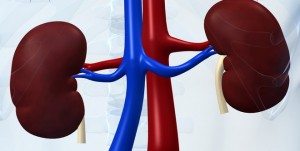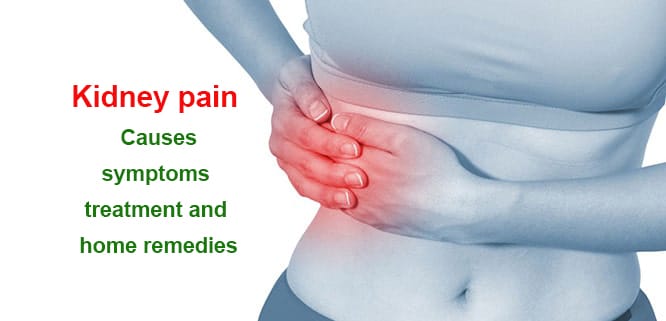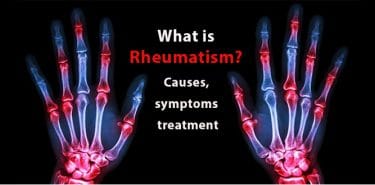Kidney pain is mainly caused by urinary system infection, kidney stones or external factors such as impact and injury. It might be difficult to distinguish kidney pain from back pain. However, kidney pain is usually felt deeper on ribs and back. Kidney pain might be an indicator of many illnesses such as kidney stone, infection, cyst, or more seriously, cancer. Therefore, it should be taken seriously, and medical help must be sought for true diagnosis. The physician will diagnose the cause of the pain and give proper treatment.
Table of Contents
What is kidney pain?
Kidney pain is the one-sided feeling of pain or discomfort on the upper abdominal or back area of the body after a disease in, impact or injury to kidneys. Kidneys are organs which are on the left and right sides on upper abdominal area of the body close to the back muscles.
Their function is to excrete the excessive fluid and waste from the body. The pain in these areas may not always be stem from your kidney. If your pain is accompanied by fever and urinary tract problems, you might have a serious issue about your kidneys.
Kidney pain location
Kidney pain is the pain felt on the side of your body, on both sides of your spine, between your chest cage and hip. It usually develops on one side of your body; however, if there is a problem affecting both kidneys, it may be seen on both sides. Kidney pain is severe and sharp if you have kidney stone, and milder and uncomfortable if you have infection.(1)
This pain is usually constant, does not worsen with motion or not improve without treatment. Sometimes, pain may be reflected on your inner thigh or lower part of your abdomen.
Causes of kidney pain
- Kidney bleeding (hemorrhage)
- Blood clots in kidney vessels (renal vein thrombosis)
- Swelling of kidney due to urine accumulation
- Kidney cancer or kidney tumor
- Kidney cysts
- Kidney infection (pyelonephritis)
- Kidney stone
- Polycystic kidney disease
What does kidney pain suggest?
Kidney pain manifests as an indicator of several diseases. This might be a periodic sickness such as common cold, or a serious problem such as kidney cancer (tumor). To learn what causes kidney pain, examination and certain tests are performed. Later, the necessary treatment is initiated.

Some diseases seen with kidney pain
Kidney stone
Kidney stone is the firm accumulations consisting of minerals and salts in the kidney. The consumed food and the amount of water are of high importance in the development of kidney stone. There are many reasons of kidney stone development. Suffering from kidney stones might be extremely painful; however, if stones are noticed early, they do not cause permanent damage.
If the condition is mild, taking painkillers for the pain and drinking plenty of water may be recommended. However, if the stones affect the urinary system and cause complications, surgical intervention may become necessary.(2)
Symptoms of kidney stone
- Severe pain is felt on the back and below the ribs.
- The pain is also felt in lower abdomen and groins.
- The pain might be intermittent.
- Burning sensation and pain in side when urinating.
- Pink, red or brown urination is observed.
- The urine appears blurry and smells.
- Nausea and vomiting may be observed.
- The need to urinate is felt constantly, however, the amount of urine is low.
Kidney infection
Kidney infection (pyelonephritis) is usually starts in the urinary tract or bladder and reaches to kidneys. Bacteria transmitted via urinary tract reach to kidneys and cause infection. Kidney infection is a type of urinary tract infection (UTI). Individuals experiencing the symptoms of the infection should seek immediate medical help. Unless treated, it may cause permanent damage in kidneys.
Women experience urinary tract infection and kidney infection more frequently than men do. The possibility of bacterial exposure via urinary tract is higher in women. This is because women have shorter urethra.(3)
Symptoms of kidney infection
- Temperature may rise and chills occur.
- Strong pain is felt on the back and groins.
- Abdominal pain may occur.
- Frequent urination occurs.
- Despite frequent urination, difficulty with urination is seen.
- Burning sensation and pain is felt during urination.
- Bloody urine is seen, smell may occur.
- Nausea and vomiting may be observed.
Early diagnosed kidney infection is treated using painkillers and antibiotics.
What is kidney cancer?
Also called as renal cancer, kidney cancer is the condition in which kidney cells become cancerous and the tumor gets out of control. Almost all kidney cancers first start in the walls of small kidney tubules.(4)
Most of the kidney cancers can be diagnosed before they spread to other organs. And it is easier to successfully treat the early diagnosed kidney cancer. However, these tumors may get very large before diagnosis.
Symptoms of kidney cancer
- Bloody urine is seen and this blood may be pink, red or cola-color.
- Back pain lasts long and may never reduce.
- Loss of appetite occurs.
- Unexplained weight loss occurs.
- Constant feeling of exhaustion
- Intermittent high fever may occur
If you are experiencing these symptoms or if you are worried somehow, you should seek immediate medical help.
Causes of kidney cancer
- Being 65 years old or older
- Smoking
- Obesity
- High blood pressure (hypertension)
- Long-term dialysis treatment due to chronic kidney failure
- Family history of kidney cancer
- Exposure to cadmium or certain herbicides in the workplace.
What is kidney cyst?
Kidney cysts are round vesicles which develop in kidneys. The most common cysts are called simple kidney cysts and do not cause serious problems. They rarely cause complications and are not cancer. The exact cause of simple kidney cysts is not known. Simple kidney cysts can easily be detected during imaging tests performed for any reason. Treatment is usually not necessary for asymptomatic simple kidney cysts.
However, simple kidney cysts should be distinguished from polycystic kidney disease (PCKD). Polycystic kidney disease causes multiple cyst formation in both kidneys, and spreads to organs like pancreas and liver. This is a genetic disease.
Symptoms of kidney cyst
Simple kidney cyst is asymptomatic. However, if cysts are present in both kidneys and the condition is severe, it may be symptomatic. These symptoms include fever, upper abdominal pain, and long-lasting and agonizing pain on the back.
The rupture of the kidney cyst causes severe back and leg pain. In addition, infected kidney cysts may lead to urinary obstruction and kidney swelling.
What is good for kidney pain?
The treatment of kidney pain is based on the underlying condition. Your physician may request a urine analysis to check for signs of infection. In addition, imaging tests such as CT scan and ultrasonography may be necessary to find the cause of pain. The healthcare professional establishes the diagnosis after finding the cause and provides a proper treatment.
Home remedies for kidney pain
At-home methods and herbal remedies to alleviate the kidney pain;
- It is necessary to avoid cold and keep the feet warm. Catching cold may exacerbate the kidney pain.
- Placing a hot water bag on the painful area would be effective.
- Consuming lemon water is a good precaution against the risk of infection. It is also necessary to drink plenty of water.
Herbal remedies for kidney pain
Herbal remedies prepared at home protect the body. However, it is necessary to consult a physician before applying these remedies. The herbs used in these remedies may cause problems such as edema, swelling or allergy.
Drink plenty of water
Plenty of water may prevent kidney stone development and clean the bacteria causing urinary tract infection. In addition, if you have kidney stone, it helps you pass the stone easier. If you passed a kidney stone, you should continue to drink at least 12 glasses of water daily to prevent recurrence. The color of your urine should be very light yellow. Dark yellow colored urine indicates inadequate water consumption.
Fresh lemon juice
Acid in the citrus fruits such as lemon helps break and dissolve the kidney stones. To get the best results, use fresh lemon instead of lemon-flavored beverages. Start to drink lemon water as soon as you wake up and continue throughout the day. You can also mix olive oil with lemon water. Lemon water also prevents bacterial growth.
Dandelion tea
Dandelion tea is a diuretic and it means that it can clean the body from toxins by excreting the excessive urine. Dandelion contains vitamin A, vitamin B, vitamin C, vitamin D, and minerals like potassium, iron and zinc. You can drink fresh dandelion water or prepare dandelion tea. You can add orange peel, ginger and apple to flavor water.
You can drink 3-4 glasses every day. Eating dandelion may sometimes cause heartburn. In addition, if you are using blood thinner, antacid, antibiotic, lithium and diuretic medications, you must consult your physician!
Watermelon seed tea
Watermelon seed tea acts as a diuretic to clean the body from toxins and may promote the kidneys to have better function.
Celery water
Celery water cleans the body from toxins contributing to kidney stone formation. It also helps you clean the body, thereby, you can pass the stone. Put a few celery ribs and water into blender and blend them, and drink this water throughout the day.
If you have any bleeding disorder and low blood pressure, or plan to undergo surgery, do not consume celery water. If you are using any kind of medication, you must consult your physician.
Parsley tea
Parsley is a proven diuretic. Other than parsley water and tea, it can also be used topically, and it can be applied to the painful area as a paste to alleviate the pain.
Basil water
Basil contains acetic acid which helps break the kidney stones and alleviate the pain. It also reduces uric acid levels, and this reduces the risk of stone recurrence. You can prepare a tea from fresh and dried basil leaves and drink a few glasses a day.
You can also drink fresh basil water or add it into a smoothie. As it may cause low blood sugar, low blood pressure or increased bleeding when used for a long period of time, do not use it for more than 6 weeks.
Cider vinegar
Cider vinegar contains citric acid. Citric acid helps dissolve kidney stones. Cider vinegar may help alkalize blood and urine, and increase gastric acids to prevent new stone formation. In addition to kidney clearance, it may also alleviate pain caused by the stone.
Add 2 spoons of vinegar to 10 glasses of water and drink this throughout the day. Diabetic individuals should drink this mixture with caution. Carefully monitor your blood sugar level throughout the day.
Pomegranate juice
Pomegranate juice may help improve your overall kidney function, and also the stone and other toxins in your system. It also reduces urinary acid levels, and this reduces the future risk of stone formation. You can drink as much pomegranate juice as you want.
Wheatgrass water
Wheatgrass contains many nutrients, and it is known to be good for health for many years. It also helps pass the stone and clean the kidneys by increasing the urinary flow.
You can drink up to 10 glasses a day. However, start with the minimum amount possible and gradually increase to prevent side effects, and drink it on a full stomach to prevent nausea. If you do not have fresh wheatgrass water, you can take powdered wheatgrass supplements according to instruction.
How to prevent kidney pain
Kidney pain usually occurs due to urinary tract infections, kidney stones and direct trauma. Therefore, it is necessary to resolve these underlying reasons first.
What can you do to avoid kidney pain?
- Drink plenty of water to increase your urine and excrete the bacteria from your body.
- Do not hold your urine.
- After defecation, clean the area from front to back to avoid bacterial contamination from rectum to urinary tract.
- Prefer to take a shower instead of taking baths.
- Gently wash the skin around vagina and anus – do not use hard soap or hardly massage the area.
- Pee as soon as possible after sexual intercourse even if you only produce a small amount of urine.
- Avoid using perfumed deodorants or perfumed hygiene products on your genital area.
- Go for a low-oxalate diet.
- Lower your cholesterol level.
- Exercise regularly
- Avoid damage to your kidney.
- Limit your consumption of red meat.




